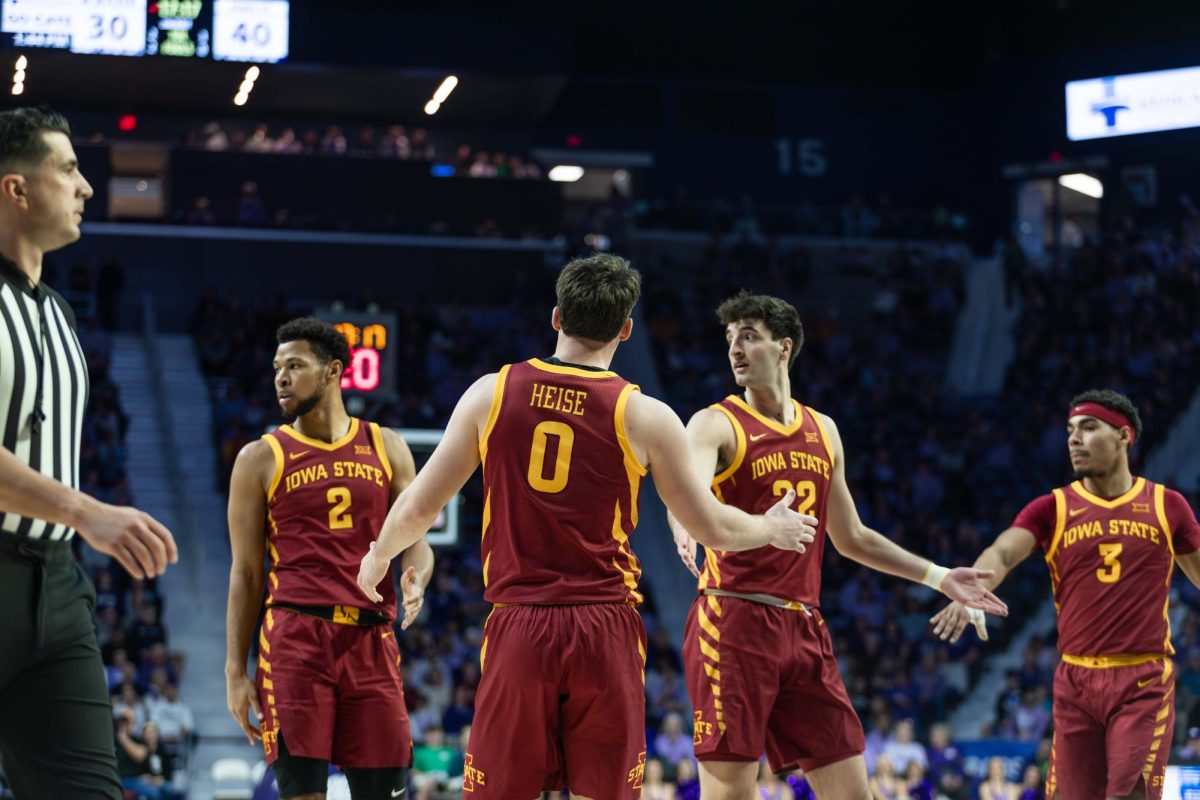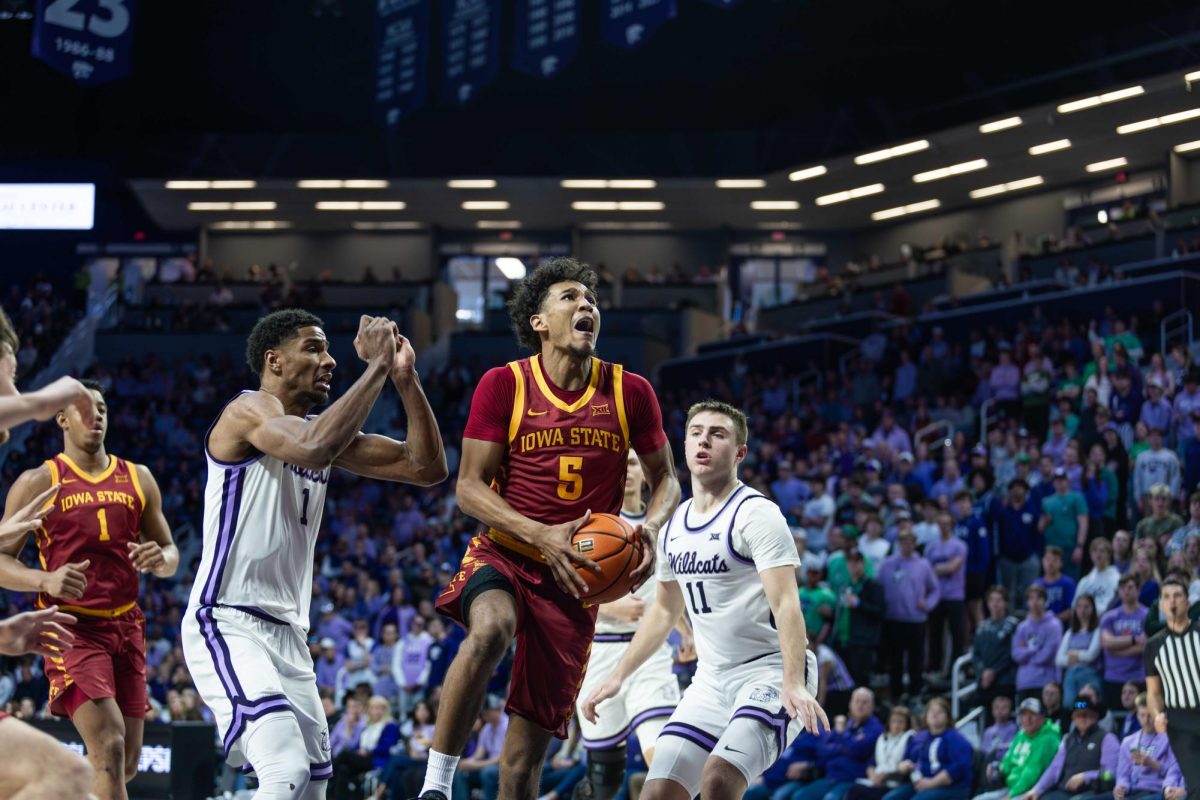In the trenches
January 10, 2007
Gene Chizik knows exactly where football games are won and lost.
The trenches – the offensive and defensive lines – are what can make or break a team. Chizik’s first job at Iowa State is to rebuild those two areas.
Four of Iowa State’s five starters on the offensive line graduated, leaving Tom Schmeling and Reggie Stephens as the only Cyclone big men with any real game experience.
Brent Curvey and Shawn Moorehead graduated from the defensive line, meaning two new faces will have to be inserted into that line.
All in all, it’s going to take some work to build those positions up into the strengths the ISU coaching staff wants them to be.
“You have to win with the offensive and defensive line,” said ISU defensive coordinator Wayne Bolt. “That’s a high priority. It’s a high priority now, it’s a high priority when we’re here 10 years from now.
“Offensive and defensive lines win championships and then you go from there.”
Bolt’s defensive line is in better shape then the offensive one.
Rashawn Parker returns after recording three sacks as a true freshman. Ahtyba Rubin spent time filling the middle, and Bryce Braaksma also made solid contributions on the defensive line last season.
Kurtis Taylor, who was slated to be the Cyclones’ starting end, will return from a knee injury he suffered during fall practice, which sidelined him for the season.
After spending more than 20 years as a defensive assistant, Chizik has seen plenty of football, enough to know exactly what it takes to be successful on that side of the football.
Stopping the run – something Iowa State has struggled with the last year – will remain his top defensive priority.
“When we faced a team that you knew could run the ball, you had to strap it on, you had to bring it,” Chizik said. “There’s nothing more demoralizing (to a team) than a defense that can’t stop the run.”
The Cyclones finished 11th in the Big 12 in rush defense in 2006, giving up 153 rush yards per game. That will have to change if Iowa State is going to be win.
“Stopping the run is No. 1,” Bolt said. “We want to stop the run first and create passing situations and then create situations, whether it be through a blitz or man coverage or whatever, to stop them and to get (the defense) off the field.”
Chizik’s 2006 Texas defense led the Big 12 in rush defense, allowing just 62 yards per game.
Linebackers Alvin Bowen and Adam Carper will both be back next season, but Chizik now has to patch another hole in the defense.
Sophomore linebacker Tyrone McKenzie – Iowa State’s second leading tackler last season – decided to transfer to South Florida. Those three combined for over 300 tackles last season, even though Carper missed the last seven games of the season with a knee injury.
Offensively, Chizik’s philosophy stays on the ground. Just as a team has to stop the run to be successful, an offense has to have a powerful running game to win.
“I don’t think you can win football games consistently if you can’t run the ball,” Chizik said. “Defenses are too fast and too good, pass rushers are too good, if you put all the pressure on the quarterback, he’s going to have a hard time winning the game by himself trying to throw it. To me, the best thing you can do for your quarterback is to be able to run it.”
That’s where the problems begin.
Not only are the Cyclones thin on the line, their stable of running backs isn’t in much better shape.
Stevie Hicks and Ryan Kock – Iowa State’s two leading rushers last season – graduated, and no other Cyclone back has proven to be able to run the ball consistently.
Jason Scales had chances last season, playing in nine games and rushing for 176 yards. Freshman Josh Johnson also saw limited action, but was never overly effective.
“Experience is hard to beat and when you don’t have it, that’s tough,” Chizik said. “We’re going to bring in guys we think can help us in that regard, both at tailback and on the offensive line.”
To get that experience, Chizik and his staff have already hit the junior college ranks hard, getting commitments from Jamicah Bass, a four-star running back with 4.3 speed, and Doug Dedrick, an offensive lineman from Arizona.
Defensively, Chizik signed DaMilyn Tanner, a four-star cornerback who was Bass’ teammate in California.
Filling the rest of the holes in the roster has proven complicated, as the coaching staff won’t have a clear picture of what their personnel is capable of.
“It’s hard when you first come in here, because all you really have to go on is what people tell you,” offensive coordinator Robert McFarland said. “You almost have to go on the scuttlebutt, what people are saying. We truly won’t know where we’re sitting until after spring ball.”
There is also the fact that some positions, like the offensive line, were senior dominated, meaning the staff has no game tape of the underclassmen who are still with the team.
“There’s nothing really to evaluate and watch (in those situations),” McFarland said. “At some of these positions we can’t evaluate until we see these players play, because they didn’t get to play in these ball games.”
One position where the new coaches know what they’re getting is at quarterback. Bret Meyer will be back for his fourth year as the starter, giving the offense the leadership and experience they are in desperate need of.
“Bret’s a very, very good football player and we just have to give him the tools and ammunition to have a great senior year,” Chizik said.
Chizik kept only one member of Dan McCarney’s staff, quarterback coach Todd Fitch. He thinks the change in coaches will serve to push Meyer to be even better.
“He has to go learn something, and that has him excited,” Fitch said. “There’s some uncertainty, but that’s good, especially since he’s a fourth-year starter, you start to get comfortable. If things hadn’t changed we would have added a thing or two, but he knows 90 percent of what we were going to do. I think it will present a challenge to him.”






